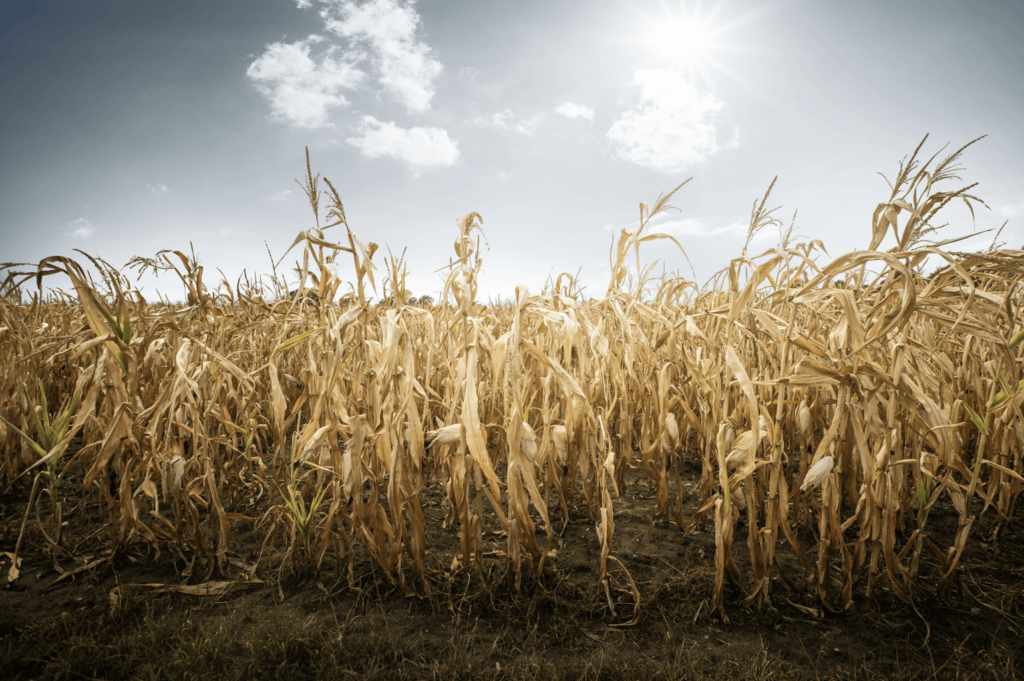Food & Climate
Food supply chains face severe risks all over the world from climate change and Trump’s trade wars, urging reforms to ensure resilience.
US President Donald Trump sparked a trade war during his first days in the White House. Although he postponed the 25% tariffs on imports from Mexico and Canada hours before they were due to take effect after promises from both countries to secure the borders, he imposed a 10% tariff on China, prompting Beijing to respond in kind, according to several reports reviewed by “Food & Climate” platform.
No measures have as yet been announced for European trading partners, but Trump told reporters that tariffs on EU goods imported into the US could happen “pretty soon.”
While a trade war with Canada and Mexico has been averted for now, businesses do not know for sure whether the tariffs will now come into effect on March 4, as the Trump administration has warned, or whether the threat of tariffs will be used to extract further concessions, said Matt Lekstutis at global procurement and supply chain consultancy Efficio.
“Even if tariffs don’t go into effect, the potential alone drives inefficiencies in procurement, production, distribution and logistics as companies move to hedge risks, accelerate purchasing, and reassess supplier relationships. The broader impact? Higher costs, disrupted operations, and an uneven playing field where some companies are better positioned to adapt than others.” he said, according to “AFN”.
Food supply chains in UK and Spain
While the UK finds itself at a precarious juncture as various external pressures threaten the stability and resilience of its national food supply chains, the President of the Government of Spain, Pedro Sánchez, warned of trade war and climate change.
He said: “in a trade war there are no winners, we all lose, which is why Spain will always have its hand outstretched to avoid trade wars and tariff escalations”. Nonetheless, he stated that the Government of Spain will be “firm” and will defend farmers, stockbreeders, fishermen and their cooperatives”.
He did so during the closing ceremony of the presentation of the “necessary and pioneering” National Food Strategy, held at the iHub La Vega Innova in San Fernando de Henares (Madrid), which was also attended by the Minister for Agriculture, Fisheries and Food, Luis Planas.
Nearly one-third of the UK’s food imports come solely from the EU, leaving the nation highly vulnerable to any disruptions in international trade.
The National Preparedness Commission (NPC) has warned that the country is not prepared for the scale of risks now facing its food supply.

Extreme weather conditions, economic shocks resulting from global events such as Russia’s invasion of Ukraine and the COVID-19 pandemic, as well as trade barriers and geopolitical tensions, collectively buffet the UK’s food supply chains infrastructure.
Adding to these complications are the escalating food prices, now 25% higher than in recent years.
The NPC report recommends a shift from the prevalent ‘just-in-time’ logistics model to a more robust ‘just-in-case’ strategy.
This strategy envisions sturdier food reserves, enhanced storage facilities and a more interconnected chain between food producers and retailers, all aimed at insulating the nation from sudden market shocks and supply disruptions.
Tim Lang, Emeritus Professor of food policy at City University of London and author of the (NPC) report, stresses that food security is not just about having enough supply but also about ensuring affordability and accessibility: “There is too much complacency about UK food security and civil food resilience barely features at all in forward planning”, according to sustainability magazine.
US inflation
“The President is right to focus on major problems like our broken border and the scourge of fentanyl,” said the US Chamber of Commerce in a statement on Monday. “But the imposition of tariffs under the International Emergency Economic Powers Act is unprecedented, won’t solve these problems, and will only raise prices for American families and upend supply chains.”
In a press release, the International Fresh Produce Association added that the “broad application of tariffs can disrupt supply chains, threaten market expansion, increase costs for consumers, and place unnecessary strain on growers and producers,” while FMI the Food Industry Association issued a statement stressing that imports are unavoidable if American consumers want year-round availability of certain fresh foods.
“With 1.6% retail and 7.5% food manufacturing net margins,” tariffs will put “incredible pressure on our members… at a time consumers are extremely concerned about prices,” said the group.
“We know from experience that farmers and rural communities will bear the brunt of retaliation,” added the American Farm Bureau Federation (AFBF) in a statement on its website. “Over 80% of the United States’ supply of a key fertilizer ingredient — potash — comes from Canada. Tariffs that increase fertilizer prices threaten to deliver another blow to the finances of farm families already grappling with inflation and high supply costs.”

The food and beverage industry, already under pressure from inflation and regulatory shifts, may face rising costs and logistical bottlenecks as tariffs disrupt established trade routes. If China retaliates with its own import restrictions, US exporters—particularly in the agricultural sector—could experience decreased demand, further exacerbating supply chain instability, according to “New Food Magazine“.
With trade tensions escalating, businesses will need to monitor developments closely and adapt their sourcing and distribution strategies. The coming months will be crucial in determining the long-term effects of these tariffs on global food supply networks.

